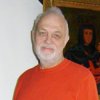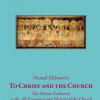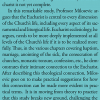As an outstanding poet and novelist, Aleksandar Petrol is featured in the Dictionary of Literary Biography (v. 181, 242-250 p.p., Washington D.C. and London 1997) as one of the most important Serbian writers of the post World War II period. He has served as President of the Writers’ Association of Serbia and Acting President of the Writers’ Association of the former Yugoslavia. Petrov is a member of the International P.E.N. and several other literary and academic associations.
He has taught at over ten universities in the U.S.A. and has lectured extensively in many countries of the world. Since 1993, he is affiliated with The University of Pittsburgh, Pittsburgh, U.S.A. Petrov has published 8 books of poems in Serbia and translations of his books were published – in Britain, France, Spain, Sweden, Romania, Poland, Israel, China, Taiwan, Hong Kong, Japan and the U.S.A. His poems were translated into 29 languages and included in anthologies of World, European, Yugoslav and Serbian poetry.
He is author of three novels, "Like Gold in Fire" (“Kao zlato u vatri” 1998), "Turkish Vienna" (“Turski Beč” 2000 and "The Lion's Cave" (“Lavlja pećina” 2004) and as an Trilogy 2009).
Petrov has been the Editor of the Serbian Section of “American Srbobran” (“Amerikanski Srbobran”, Pittsburgh 1906-2012) since 1993.
Aleksandar Petrov's poetry was translated by some distinguished poets, like Charles Simic, Mark Strand, Richard Burns, Chang Shiang-hua, Gozo Josimasu, Li Qing, Mircea Ivanescu, Muza Pavlova, Ioan Flora, to name just a few. The Russian poet and Nobel laureate Joseph Brodsky commended Petrov as a "a literati in the old-fashioned sense of the word" and "a poet of considerable powers"
A. Petrov is the recepient of several mayor Serbian and international literary awards. In 2004 he has received the most outstanding Romanian award for poetry, The Lucian Blaga Great Award for Poetry , in 2008 am award in Moscow as the best Russian language poet writing in the Russian Diaspora, Serbian Writer Association for Life Achievement (2009), Serbian Krivak Award 2012 for Culture.
Mircea Ivanescu , an outstanding Romanian poet and literary critic, gave a brief but comprehensive portrait of a Serbian poet (Bound by Red, 75)
"A poet of intellectual lyrism, an authentic and vibrant sensibility, who knows how to combine data from a biography dedicated to creativity with data pertaining to the specific culture of his country as well as to universal culture, this is the poet and literary critic Aleksandar Petrov. The selection in this issue presents him in a contemporary and universal lyrical landscape, as a unique voice of extraordinary originality and strength, as a truely important modern poet (his poems have been rendered into English by the outstanding American poet Charles Simic) and representative of the best of Yugoslav poetry. The creative spirit of that country, the beauty of its landscape and its people, are embodied in the beauty of A.Petrov's poems."
The Nobel price winner Joseph Brodsky:
"Professor Alexander Petrov whom I have priveledge to know now for more than a decade is an outstanding scholar of both Raussian and American literature. His main expertise lies in the field of contemporary poetry -- the subject with wich he dealt as essayst, anthologist, translator and last, but not least, an active practitioner of the craft. A poet of considerable powers himself, Mr. Petrov is able to approach his material with the lucidity of an insider. The most comprehensive anthology of Russian poetry to date is for instance compiled precisely by this man, native of Yugoslavia, a visiting scholar to various American campuses, a literati in the old-fashioned sense of the word. Simirarly, Professor Petrov is the author of several the most iluminating pieces on the poetry poetic scene in this country. In a sense, Mr Petrov's advantage vi-a-vis his subject is that of an inforced aesthetic distance between the observer and his phenomena: this man is indeed a born comparativist". (A. Petrov, "La Dama del Vestido Vacio", Madrid, l988
An English poet Richard Burns:
"The spand of this hand (Petrov's) is huge: from summer in Columbus, Ohio, to winter in Siberia; from Warsaw to William Carlos Williams, St. Petersburg to Ezra Pound, Harvard to Haley's Comet, Cleveland to Caucausus, Jerusalem to Tsvetaeva, and Borges back to Belgrade. Vast areas and stretches of language are cunningly sliced up into staccato snippets, wrapped in connotative codes, sprinkled with associations, spiced with ambiguities, salted with erudition, and perpered with irony. Here collage is conscience and montage is memory. The recepe: self-criticism through world-questening and world criticism through self-questioning. A wry documentation of personal history all too disarmingly condenses that of milenia: exile and migration, emigration and hope" (From the introduction to A. Petrov's book Lady in an Empty Dress, London 1990)
The best Romanian poet of younger generation, Traian T. Coshovei, reviewing A, Petrov's poetry in Romanian translation ("The Gold Sight" 2004), called A. Petrov "a postmodern Don Quixote", "a great poet whose poetry has an unmistakably unique voice, supported with tragic existence, viewed from the peak of irony". A Petrov writes his "existential diary with blood and nerves", a sort of a "pastoral-satiric radiography of the present times, treated with contemplated tolerance, distinctive for the great minds". A. Petrov distinguishes himself among "great personalities of contemporary European literature" by "personification and personalization of a labyrinthic sentiment" and by an "aristocratic attitude".
From: Official Web-Site






